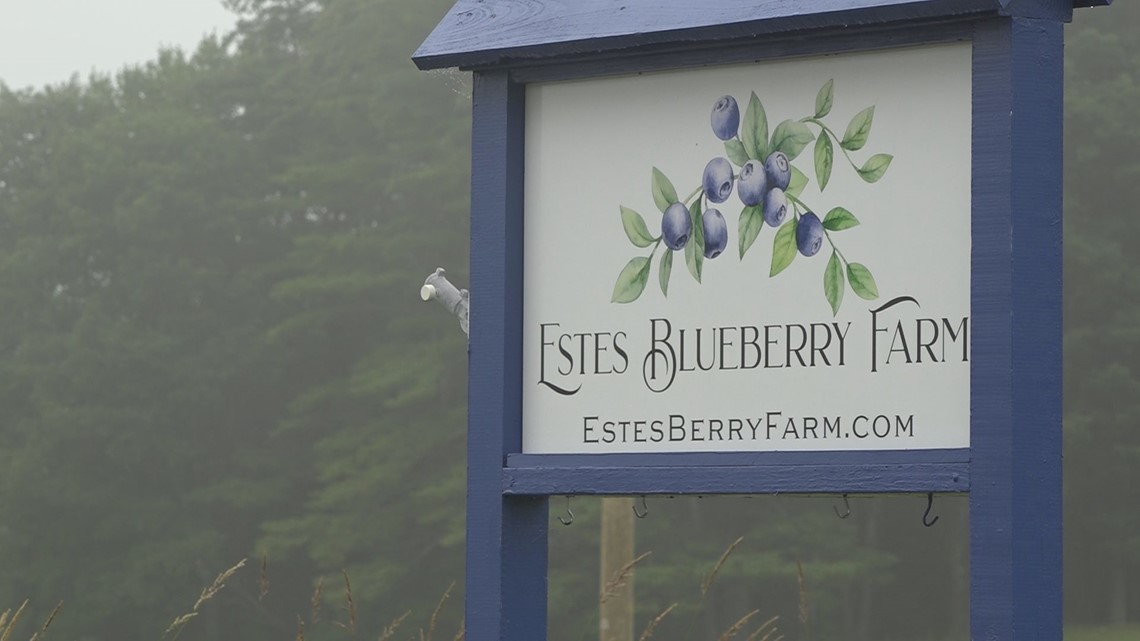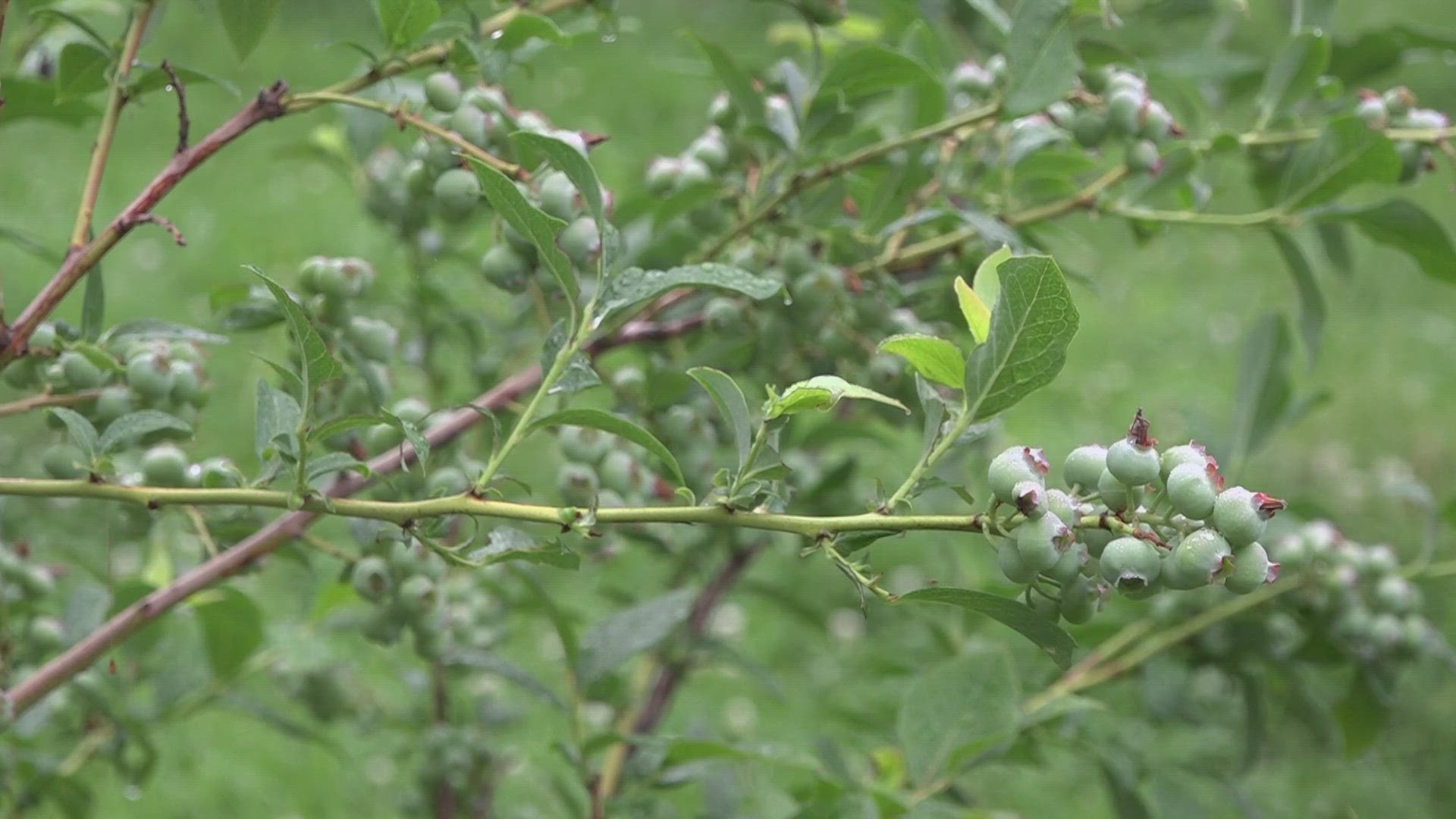BUXTON, Maine — Blueberry season will soon start in Maine, but the bushes just need a little bit more sun and water for the fruit to get ripe and ready to enjoy.
This season, the crop will hopefully be ready to harvest for most farmers at the end of July or early August. However, the start and length of the season depend on weather and how quickly the berries ripen.
There are about 250 farms in Maine growing cultivated high-bush blueberries, totaling about 600 acres. Estes Blueberry Farm in Buxton is one of them.
Its owner, Don and Gwen Estes, say their crop is looking great this year. For the past 40 years, they've grown 2,000 blueberry bushes with two varieties: Bluejay and Jersey.
"The last two years we've had droughts. This year it's been cold and wet, and we haven't had a long stretch of good weather," Don Estes said. "We haven't had any good hot sunny, which all the crops need. The blueberries look exceptionally good this year."
Estes Blueberry Farm only operates as "pick-your-own."
Gwen Estes said the small berries are loaded with nutrients.
"They are American Heart Association certified," Gwen Estes said. "They have fiber, vitamin C, vitamin K, manganese, and they are really healthy for you. We are going to try and promote more of the health benefits this year, because they are a good fruit for you."
This season, Estes Blueberry Farm will be offering 1 pound of "pick-your-own" blueberries for $4.25.


Dr. David Handley is a vegetable and small fruit specialist with the University of Maine. He said there is a new pest for berries in Maine, called spotted-wing drosophila.
Handley said according to the latest census, there are about 250 farms growing cultivated high-bush blueberries in Maine, totaling about 600 acres.
"This means that most farms maintain relatively small plantings of blueberries, usually between half to 5 acres, and usually the berries are grown as part of a diversified farm operation, which would grow numerous other fruit and vegetable crops to support a farmstand or farmers market," Handley said.
Handley said the 2023 season is looking very good for blueberries.
"Despite a very cold snap in February, there doesn't appear to be significant winter injury on the bushes. A very severe frost in mid-May threatened to damage the many blueberry blossoms that were just coming out at that time, but again it appears that the damage was minimal, and the berries are looking very good," Handley said.
These are some of the main challenges blueberry growers in Maine face:
- Weeds, birds, diseases (especially mummy berry, a fungus disease, which tends to be worse in wet springs like this), and insects (especially spotted wing drosophila, a new, invasive fruit fly that can ruin a crop when it infests a field)
- Getting customers to come and harvest the fruit when the weather is less than ideal, rainy weekends hit farmers especially hard, as this is when they count on lots of customers coming to get their berries.
- Getting farm labor to help grow and maintain the crop has become very challenging in the past few years.
Handley said high-bush blueberries are considered a high value crop and can be very profitable, even on small acreages. Getting the fruit started takes a lot of time and money, too. The blueberry bushes won't start producing berries until about four years after planting.
"Further, there must be a good market nearby to sell the crop, good supply of labor, and the knowledge and dedication to keep up with necessary pruning, fertility and pest management to keep the planting productive. Investment costs and profits can vary considerably from site to site, but startup costs are thought to be about $10,000 to 15,000 per acre, with a net profit of about $5,000 per acre once the plants start producing," Dr. Handley said.
You can find a list of places that sell fresh blueberries in Maine, here.

